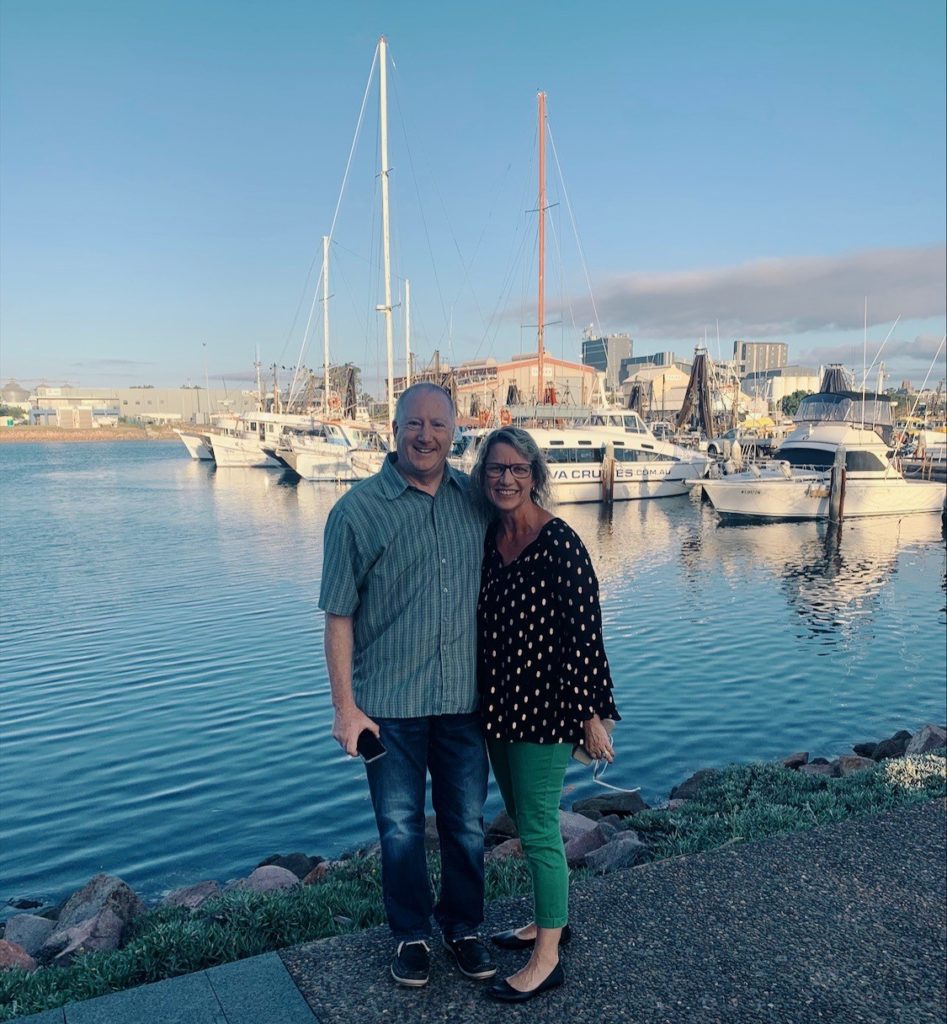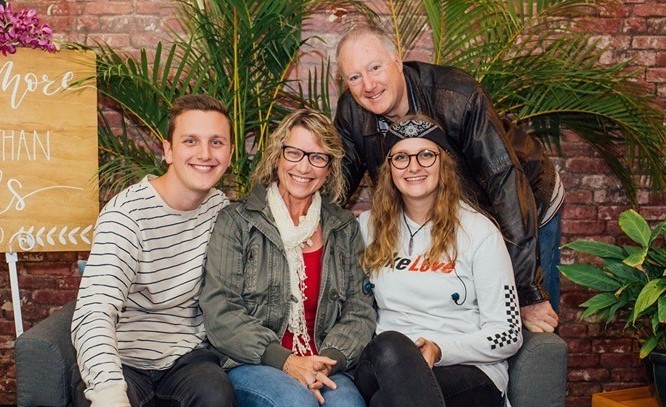Rick’s “very happy” with his decision to change to generic imatinib
Rick Razey, who was diagnosed with CML in 2015, didn’t hesitate to change his prescription to a generic imatinib a couple of years ago when he heard of its availability.
Then he made another change after hearing of a different brand of imatinib that donated profits from its drug, Cipla, to a charity – the Leukaemia Foundation.
“If you can take a drug that can do good for others… why wouldn’t you do that? It makes complete sense to me,” said Rick, 53, of Sydney.
When he was told he had CML, on 20 May 2015, his haematologist described him as the earliest case of detectable CML he’d seen in his career, and that that was “good news”.

Rick was having investigations into a cough he’d had for a few years when a blood test revealed some concerning numbers. The blood test was redone and when those results showed some of those numbers had worsened, Rick was referred to a clinical haematologist.
“He said there was the possibility of myeloproliferative disease, even CML,” said Rick, who was prepared.
“There was probably not good news coming.”
After more detailed tests, Rick’s haematologist explained, “the bad news is, you’ve got chronic myeloid leukaemia, but the good news is I think it is the earliest I have ever seen it detected in my career”.
“We can see from other blood tests you’ve had that there was not a hint of it then, so you’ve had it in your system for between one and three months and that is exceptionally early to detect CML,” said Rick’s haematologist.
He also said, “the earlier that you detect this sort of thing, the much better the prognosis”. But when Rick asked about life expectancy, he said “no change”.
Rick went straight onto imatinib (Glivec®) – four 100mg tablets a day – and he continued his active lifestyle, playing squash every week, and wakeboarding and waterskiing every weekend. He worked in the retirement living industry at the time and was studying nursing at university.
Just shy of 12 months later – on 16 May 2016 – Rick was told he had achieved a complete molecular remission.
Rick’s daily dose continued to be 400mg, but one tablet instead of four, and he has always been strict about adherence to his medication.
“I’m 99.9% compliant. I think I’ve missed one capsule in the last year. You’d say I’m 364 out of 365 days a year compliant,” he said.
“The day I missed was when I was away travelling and a flight got cancelled when I was in Airlie Beach. I had taken enough tablets for the time I was meant to be away and we got stuck there for an extra day.
“Now when I travel, I take one or two extra tablets with me.”
Rick said he “basically has no side-effects” from imatinib, “occasionally some toileting urgency and some very occasional cramps, but it’s very occasional”.
“I have noticed that if you don’t have enough in your stomach, you’re definitely prone to gastrointestinal (GI) upset with imatinib,” he said.
When Rick’s pharmacist mentioned that Glivec was about to go off patent, he decided to go on to a generic form of imatinib when it became available.
“I said to my pharmacist – let me know as soon as you get the non-branded product in and I’ll give it a go. The first generic imatinib came with a whole range of skincare products and it seemed okay.
“The next time I saw my haematologist I told him I’d changed from the Glivec. He said he had a brochure about another generic imatinib that apparently gave all the profits away to charity – the Leukaemia Foundation.
He gave Rick a copy of a For Benefits Medicine (FBM) brochure about the generic imatinib, Cipla, and said, “do some research yourself. Ring them up and have a chat”.
“And I did. I rang up and spoke to John [Hurley, an FBM Director] and asked him all about it and he explained what they did and what the story was.
“He said you just need to ask your pharmacist to order in Cipla imatinib.
“So I went in and asked the pharmacist. I said, ‘this is what I want you to order’ and he did that, and I changed. I’ve been getting it ever since and I’ve been very happy.
“That’s how I got on to it. I got the initial recommendation from my clinical haematologist.”
Rick had no concerns about changing to a generic imatinib.
“Cipla is a capsule, not a tablet, and I have found that the capsule is actually a bit better. It has reduced GI upset, compared to the tablet.
“I asked John and Barry [Frost, also an FBM Director] about that and they said they didn’t think there was any research about that.
“I said, well I reckon the capsules are fractionally better.

“I’ve had no problems and it’s been terrific, and the thing is, the profits go to the Leukaemia Foundation – that’s the very best thing.
“It’s a shame that Australians are fearful of generics,” said Rick. “It didn’t really concern me because the TGA has pretty high standards.”
When he spoke to CML e-News, Rick was about to begin a “brand new career”. He starts work next month (February 2020) as a registered nurse.
Last updated on February 23rd, 2022
Developed by the Leukaemia Foundation in consultation with people living with a blood cancer, Leukaemia Foundation support staff, haematology nursing staff and/or Australian clinical haematologists. This content is provided for information purposes only and we urge you to always seek advice from a registered health care professional for diagnosis, treatment and answers to your medical questions, including the suitability of a particular therapy, service, product or treatment in your circumstances. The Leukaemia Foundation shall not bear any liability for any person relying on the materials contained on this website.